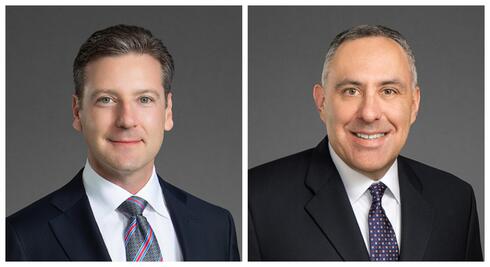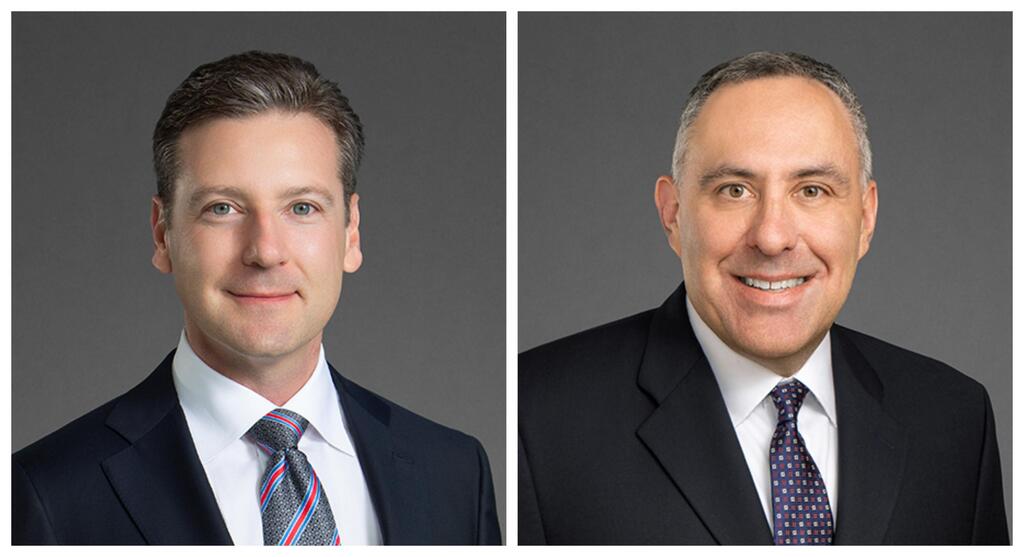
“AI Washing” is the new greenwashing - and Startup Nation should be paying attention
The legal world is cracking down on companies that exaggerate their AI abilities. While the spotlight is currently on the U.S. and European markets, the warning signs are relevant for Israeli tech as well.
In the early 2000s when companies began falsely touting their environmental credentials, the term ‘greenwashing’ entered the business lexicon. Today, a new version of the practice is spreading: This time, it’s all about artificial intelligence.
AI Washing, as it’s now being called, refers to the growing trend of companies exaggerating or misrepresenting the role of artificial intelligence in their products. From startups claiming “AI-powered” tools that are no more than basic automation, to large enterprise firms inflating their AI roadmaps to achieve attention from investors, the practice is raising red flags across legal, regulatory, and ethical domains.
Notably, global attention was turned to companies like Builder.AI, who claimed to build applications using AI while actually employing 700 Indian developers behind the scenes. The fraud case raised eyebrows in the tech and legal world, and Israel, which boasts one of the largest tech ecosystems, should be aware that similar accountability might be right around the corner.
“There's a lot of AI hype around these days, and there has been for the last few years,” explained Michael Atleson, Of Counsel in DLA Piper's artificial intelligence and data analytics practice and former Federal Trade Commission senior attorney. “And sometimes companies might be making claims that AI is being used when it's not. Maybe a company is using some simple kind of analytic tool, maybe it's using nothing at all.”
According to Atleson, an AI compliance expert, it isn’t uncommon for companies to claim that what is AI might be people hidden behind the scenes. In other instances, it can involve simply overstating or making evidence-free statements about what a particular AI can do. “We're not talking here general advertising puffery, when a company or a corporate executive talks about how ‘transformative’ technology is going to be,” he added. “We're talking about for liability purposes, specific claims that a company representative makes about certain products and services they're offering.”
With offices in over 40 countries across the Americas, Asia Pacific, Europe, Africa, and the Middle East, DLA Piper is a global law firm operating through various separate and distinct legal entities often litigating matters relating to AI and regulatory or ethical considerations. Its 2023 report, “AI governance: Balancing policy, compliance and commercial value” offers practical perspective on AI governance, strategies, and some of the challenges and risks associated with the new technology.
Atleson joined CTech alongside Danny Tobey, Partner, Global Co-Chair and Chair of DLA Piper Americas AI and Data Analytics Practice to discuss the issue of AI Washing in companies. For them, the message should be clear: companies need to be extremely cautious in how they market AI capabilities. And while the spotlight is currently on the U.S. and European markets, the warning signs are relevant for Israeli tech as well.
“Anytime you have a new technology, there's going to be a hype cycle, there are going to be unsubstantiated claims,” explained Tobey. “But when you couple that with a technology that is transformational in the way that newer versions of AI are, there's just a perfect storm and insatiable demand, and possibly over-supply of new offerings in the market. That's a recipe for these sorts of AI Washing claims.”
In the U.S., the FTC has already issued warnings that misleading claims about AI may constitute deceptive advertising. Tobey highlights that it is a rare bipartisan issue among lawmakers in America, and while Israel’s regulators have yet to crack down on AI marketing claims, the country’s startup ecosystem may eventually face pressure from investors, acquirers, or international partners who expect rigorous AI standards.
At the time of writing, there haven’t yet been high-profile fraud cases in Israel directly tied to AI Washing claims (unlike Joonko's SEC action abroad due to defrauding investors with false and misleading statements about the “quantity and quality of [its] customers”). However, the practice is garnering attention among some tech-focused firms that are looking at the murmurs overseas and steering their clients away from a potentially messy storm ahead.
For example, Israeli law firm Arnon, Tadmor‑Levy is proactively discussing regulatory balance and transparency in AI usage to avoid future enforcement or investor backlash. In February 2025, the firm advised [in Hebrew]: “Avoid exaggerated statements that could lead to lawsuits from regulators or shareholders. Formulate a clear AI policy for risk management and transparency.”
Of course, the imagery of a tech leader getting on stage to promise transformational technology is nothing new - especially in Silicon Valley. Apple Co-founder Steve Jobs would often flaunt devices or services that were overly optimistic or borderline misleading. Tesla pioneer Elon Musk has been promising fully autonomous vehicles “this year” since at least 2020, when this writer reported on it in CTech.
However, the leeway between broad promises made by one executive and objective statements made by a company creates a misty grey area that is “a perfect storm” for lawsuits and a crackdown on regulation.
“The world doesn't even agree on a single definition of artificial intelligence, and yet companies face fines of millions or billions of dollars for claims about what is or isn't AI-enabled,” said Tobey. “So at some point… it's going to be a matter of analysis and judgment by people who have been working on these types of issues for a very long time and leading some of those investigations from the regulator's side.”
In an era where AI is moving a mile a minute, and the traditionally conservative law sector is expected to catch up or curb the speed of new technologies, Tobey admits that the legal world is “at the bottom of the first inning. I don't think the dust is anywhere near settled. In fact, I think every three months, someone's going to kick up more dust. It's very hard to speak accurately about a technology that continues to change.”
To help companies avoid the regulatory or ethical headaches associated with the fallout of AI Washing, Tobey and Atleson advise using clearly defined terms, avoiding misleading language, and involving legal counsel when it comes to outward messaging to customers, clients, investors, or advertising bodies. Ideally, the in-house marketing teams would be prepped on how to handle the delicate treading of language, and ego-heavy founders should stick to vague generalities when discussing the future they wish to welcome.
Overall, it is about preventing harm and keeping companies out of trouble economically, legally, and reputationally. In time, the world has welcomed standardized disclosures akin to financial statements or data privacy notices: perhaps the USA and Europe will collaborate on building sufficient protections for customers and investors that will also protect companies. The EU AI Act and other similar frameworks are coming, and Startup Nation won’t be exempt forever, so Israelis will benefit from having their ears to the ground.
“It’s not just about disclosure. It's about safety, transparency, accuracy, reliability, privacy, cybersecurity, intellectual property, and so on,” concluded Tobey. “It's the most cross-cutting technology that I'm aware of because it is so fluid and adaptable to multiple uses. So there will have to be some form of standardization.”














